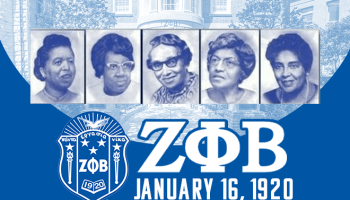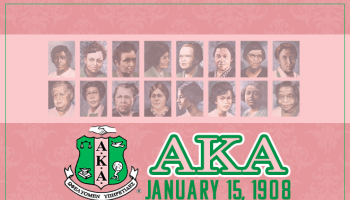Matters of the Mind
In 2008 the U.S. House of Representatives proclaimed July as Bebe Moore Campbell National Minority Mental Health Awareness Month, honoring the late writer who took on the issue in her work, including a children’s book, “Sometimes Mommy Gets Angry,” a play, “Even With Madness,” and a novel, “72 Hour Hold.”
Campbell was thrust into the issue of mental health after a loved one was diagnosed with a mental illness and she hoped that her writing would not only help her loved one get help, but help other people of color – particularly black Americans – recognize and get help.
According to the National Alliance on Mental Illness (NAMI), minorities are less likely to have mental illness diagnosed and treated, have less access to mental health services, tend to receive poorer care and are less likely to be represented in mental health research.
July was designated National Minority Mental Health Awareness Month to focus on education, support and advocacy.
Besides a lack of access to care, many black Americans worry about how they will be perceived, treated by others and what impact it may have on their jobs if their issue becomes known or if treatment will be covered by their health care plans.
Many of those who may not struggle personally with mental illness probably know someone who is. Left untreated, or undertreated, mental illness causes suffering not only for the individuals, but their families and communities as well.
The most common mental health issues include depression, bipolar disorder, eating disorders, schizophrenia and post-traumatic stress disorder, according to the National Mental Health Information Center.
Most recently, Rudy Eugene, 31, an African-American in Miami made headlines when he chewed off a homeless man's face in May before being shot to death.
The Miami Herald reported Eugene took his clothes off along the MacArthur Causeway from Miami Beach before attacking Ronald Poppo, 65, in what was described as a "ghoulish, drawn-out assault in plain view on a city sidewalk captured by a Miami Herald security camera." Eugene was shot by a police officer who found him chewing chunks off Poppo's face.
At first, the head of the Miami police union publicly speculated that "bath salts," which can trigger psychotic episodes, prompted Eugene's actions. But, according to the Miami-Dade Medical Examiner's office, only marijuana was found in his system.
Joshunda Sanders, who writes media critiques for the Robert C. Maynard Institute for Journalism Education, said it was more likely that Eugene was mentally ill.
"But pinning a tragedy to a drug scare is easier (and perhaps more lucrative) than explaining a non-existent safety net for the mentally ill," Sanders quoted Kristen Gwynne as saying in the online magazine AlterNet. "Bath salts, the mainstream media naively believes, can be banned and eradicated. Treating mental illness is a far more complicated story."
But Saunders’ story also points out that mental illness affects the unknown as well as the known, in a variety of ways, but it never gets mainstream coverage and when it does, particularly when black Americans are involved, it isn’t always treated seriously.
It certainly doesn’t get mainstream coverage, unless the focus is on odd or criminal behavior. The mentally ill are minimized, generally, by mainstream media. Bringing people of color into the discussion is rarer still. What discussion there is left to black online sites, black magazines, media outlets and blogs.
"Soul Train" creator Don Cornelius, who suffered from major, painful health issues, died from a self-inflicted gunshot wound in February at age 75. Los Angeles Laker Meta World Peace, also known as Ron Artest, has spoken publicly about his therapy for mental health issues, but he more often is the butt of jokes than empathy.
In September 2010, Artest urged middle schoolers to talk to health care professionals about what was bothering them psychologically as well as physically. Los Angeles Times columnist Bill Plaschke made fun of Artest, calling him the “looniest” Laker ever.
Suicide and mental illness are often treated as the exception rather than the rule, making it even more difficult for the average African-American to even admit he or she needs help.
“Even when the topic is more about black celebrity than race,” Sanders wrote, “mental illness, particularly in famous athletes, is viewed as ‘evidence of a criminal character,’ says David J. Leonard, author of ‘After Artest: The NBA and the Assault on Blackness.’ He is an associate professor in the Department of Critical Culture, Gender, and Race Studies at Washington State University.
"Media go immediately to focusing on the purported pathologies of the players themselves and don't want to see what the broader context is," Leonard says. "The history of race and mental health is a history of racism and the white medical establishment demonizing and criminalizing the black community through writing about their “abnormal personalities” and being “'crazy.'”
Author and spoken word artist Bassey Ikpi, who was diagnosed with bipolar disorder in 2004, founded The Siwe Project, a global nonprofit, as a forum to share experiences about mental health in the black community. And to encourage a public dialogue about mental health, Ikpi created No Shame Day on July 2.
NAMI’s website provides information on mental illnesses, support, programs, local NAMI locations and information on NAMI walks to raise funds and awareness to help those suffering from mental illness.
If you think you need help and are nervous, find a family member or close friend to go with you for a screening, or agree to accompany a loved one. If you’re trying to convince a loved one to go for help, one way may be to get him to get a regular health screening to rule out any possible physical problems and ask the physician to talk the patient about mental health issues as well.
And don’t let the lack of serious mainstream media coverage on the issue deter you from getting help.








